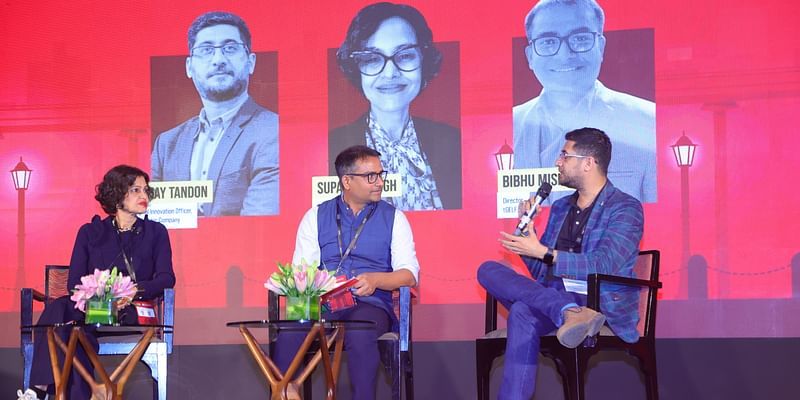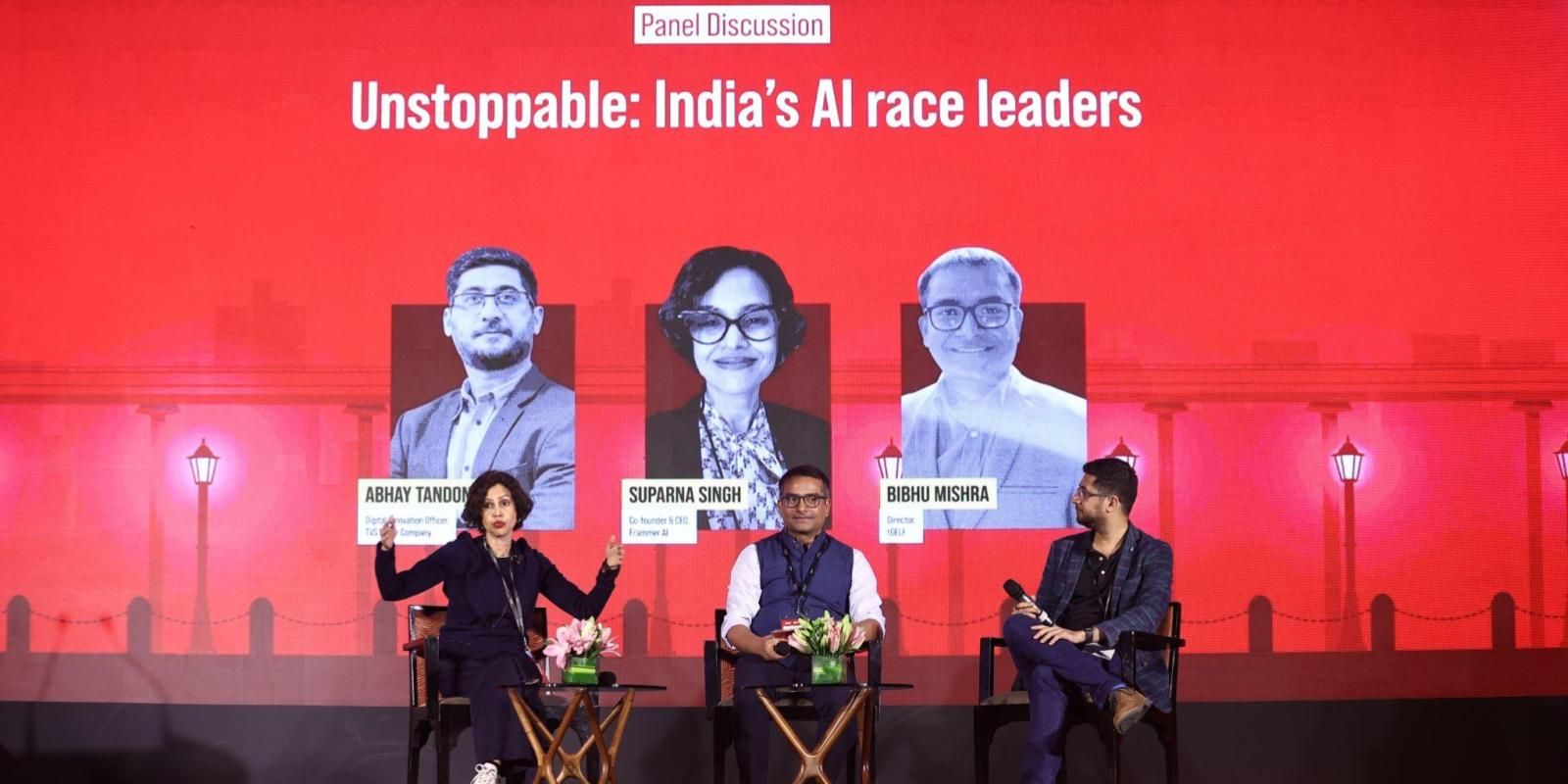
Artificial intelligence isn’t a new buzzword, but it’s disrupting industries in ways that are beyond imagination.
At TechSparks 2023, Delhi edition, Abhay Tandon, Digital Innovation Officer, , and Suparna Singh, Co-founder and CEO, Frammer AI, discussed the disruption of AI in various sectors, current trends, and AI’s potential to surpass human intelligence.
Will AI surpass humans?
Addressing the concern of AI surpassing humans, Singh said that, while we are not there yet, we are on the cusp of computers surpassing human intelligence.
“I think the deficiency right now is in their ability to take advantage. So, in some ways, computers are smarter than any human being with the breadth of knowledge that they have,” said Singh, during the session that was moderated by Bibhu Mishra, Director, tGELF.
Despite these changes, Tandon said human empathy will remain a crucial factor, keeping us ahead of the game.
“Back then, when I talked about AGI (artificial general intelligence), people were questioning if I meant AI. At that time, people weren’t aware of its purpose. Today, the conversation about AGI has gained momentum, as seen in the famous conversation between Elon Musk and Jack Ma. Initially, Musk was discussing AGI, and eventually, ASI (artificial super intelligence) entered the conversation. As I reflect on the rapid progress we’re making, AGI seems like a real possibility,” he noted.
However, Tandon doesn’t believe that AGI will result in widespread unemployment.
“We have no idea what careers will exist in 10-15 years. The learning landscape will keep changing. Despite these changes, human empathy will remain a crucial factor, keeping us ahead of the game,” he said.

.thumbnailWrapper
width:6.62rem !important;
.alsoReadTitleImage
min-width: 81px !important;
min-height: 81px !important;
.alsoReadMainTitleText
font-size: 14px !important;
line-height: 20px !important;
.alsoReadHeadText
font-size: 24px !important;
line-height: 20px !important;

Disrupting industries
Singh said she believes the discussions around AI often centre around the various forms and applications of the technology.
“There’s a certain level of academic discourse on what AI should be, and its utility is often gauged by its deployment in society. For instance, open-source models, although considered less advanced by some, are widely used globally, showcasing their utility.”
Speaking about the media sector, she noted that AI has already made inroads, especially in low-utilitarian cases like transcription and translation.
“Consider the common scenario where content is created for large screens but consumed on small screens, creating a significant gap between creation and consumption. AI, in this context, serves as a bridge. Through our platform, with a simple click, we transform a 30-minute video into a shorter, 60-second video for platforms like LinkedIn, Facebook, or Instagram,” she illustrated.
Similarly, AI technology has served as the backbone of the advancements in both manufacturing and demand-side solutions at TVS Motors.
“When it comes to manufacturing bikes, advanced technologies like neural-led algorithms and state-of-the-art robotic arms are deployed. These technologies, driven by computer vision and AI-enabled solutions, enhance efficiency in processes such as painting,” Singh said.
This ensures that defects are caught at every stage, marking confidence in the quality of products entering the market. Decision-making, targeting, and consumer experiences have benefitted from artificial intelligence in areas such as marketing and sales tech.
Singh highlighted that, in the media sector, AI has the potential to disrupt in two ways.
Firstly, it enables the scalable delivery of content, making production more cost-effective. Secondly, AI has the capacity to generate additional revenue streams.
“Media companies that resist integrating AI risk missing out on a transformative shift comparable to past resistance to adopting the internet,” she said.
Tandon shed light on experimentation being the key to innovation.
“It’s important to note that a negative or unproven test result does not equate to failure. The process involves formulating hypotheses and refining them based on correct validation. It lies in scaling up successful hypotheses,” he said.
Edited by Kanishk Singh


![Read more about the article [Funding alert] 9Unicorns leads seed round in litigation financier LegalPay](https://blog.digitalsevaa.com/wp-content/uploads/2021/05/Untitleddesign9-1621840797870-300x150.png)





![Read more about the article [Product Roadmap] How a focus on simplicity and user experience got MoneyTap the scale it was looking for](https://blog.digitalsevaa.com/wp-content/uploads/2021/03/PM1-1614692063719-300x150.png)
![Read more about the article [Weekly funding roundup March 2-8] Indian startups see marginal decline in venture capital inflow](https://blog.digitalsevaa.com/wp-content/uploads/2023/10/funding-lead-image-1669386008401-300x150.jpg)
